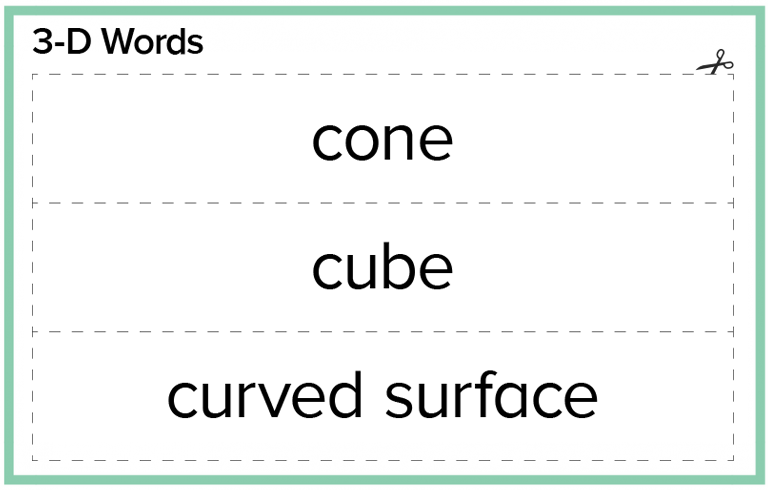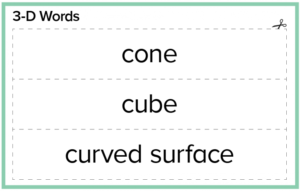Free Math Resources
Early Childhood Math: 3D Words
They can take the simplest task and turn it into a grand opportunity. This is especially true in the grocery store! Here are some fun, easy-to-do activities that will brighten yours and the child’s day through mathematical explorations – in their own world.
To view the blog post related to this resource, please click here: In Their Own World: Grocery Store
To download the resource, simply click on the image below!




